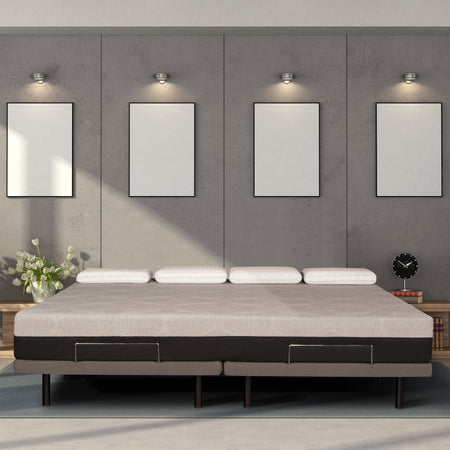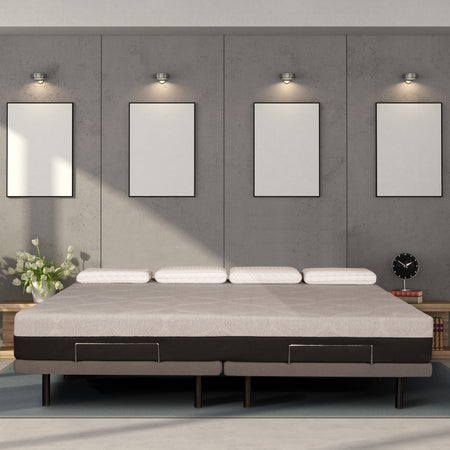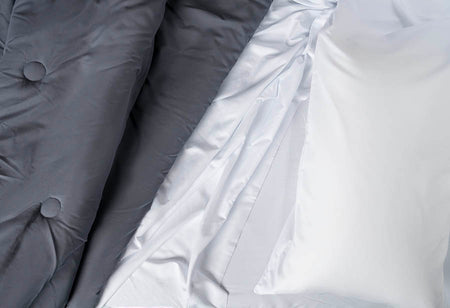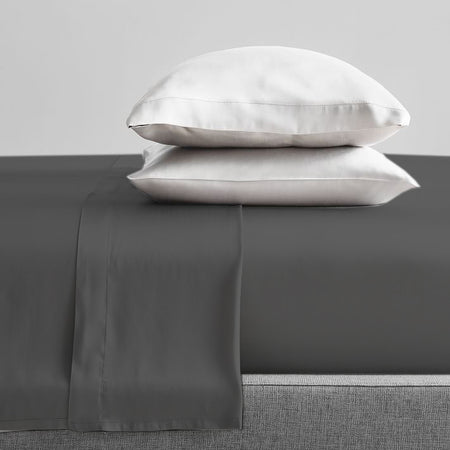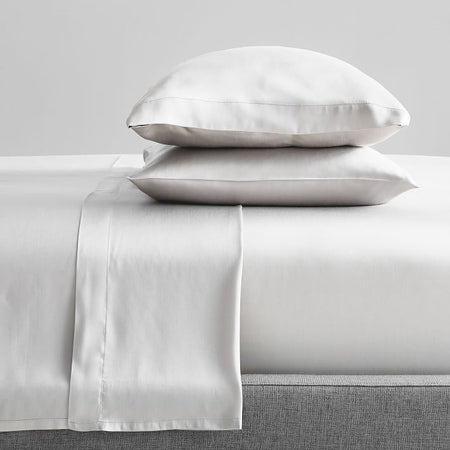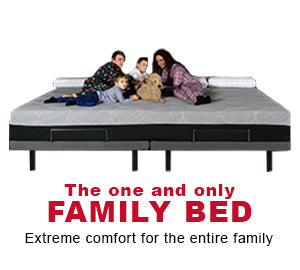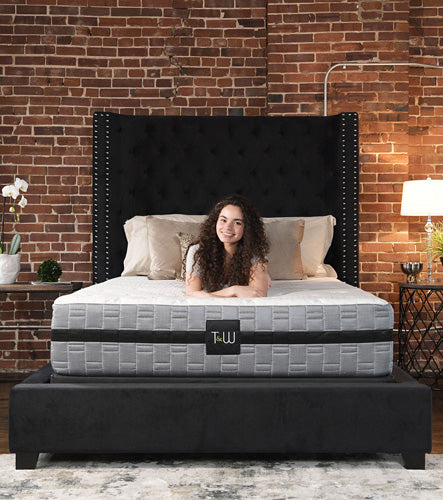Poor sleep can affect every part of your life, from how alert you feel in the morning to how well your body protects itself from long-term health problems. Many assume their restless nights, morning headaches, or daytime fatigue are due to stress or a bad mattress. But in some cases, the cause is a sleep disorder you may not have heard much about: sleep hypopnea.
What Is Sleep Hypopnea?
Sleep hypopnea is a sleep-related breathing disorder. It occurs when one's breathing becomes unusually shallow during sleep. Instead of smooth, normal airflow, the upper airway becomes partially blocked, reducing the amount of air one takes in.
This decrease in airflow means less oxygen reaches your blood. Over time, repeated episodes can lower your blood oxygen levels, strain your body, and prevent you from reaching restorative sleep stages.
The American Academy of Sleep Medicine defines hypopnea as a partial reduction in airflow lasting at least 10 seconds. It is linked to a drop in blood oxygen levels or sleep arousal. Unlike sleep apnea, breathing doesn’t stop completely, but it is still serious.

Hypopnea vs. Sleep Apnea
It’s common to confuse hypopnea with sleep apnea, especially since both involve disrupted breathing during sleep. Here’s the difference:
-
Sleep apnea: Breathing stops completely for at least 10 seconds.
-
Sleep hypopnea: Breathing becomes shallow or restricted but doesn’t fully stop.
Both conditions fall under the broader category of sleep-disordered breathing. Hypopnea can occur on its own or alongside obstructive sleep apnea. It can also be related to central sleep apnea, where the brain doesn’t send proper signals to the muscles that control breathing.
Remember that even though hypopnea may sound “milder” than apnea, the impact on your sleep quality and long-term health can still be significant.
Common Symptoms of Sleep Hypopnea
Because hypopnea episodes happen while you sleep, you may not notice them directly. Instead, the signs usually show up in how you feel during the day or how your bed partner describes your sleep.
Typical symptoms include:
-
Excessive daytime sleepiness: feeling unusually tired or needing naps.
-
Morning headaches: often due to low oxygen levels during the night.
-
Restless sleep: tossing, turning, or frequent awakenings.
-
Snoring: especially loud or irregular snoring.
-
Difficulty concentrating: brain fog or reduced focus.
-
Mood changes: irritability, anxiety, or low mood.
These symptoms can look like stress, poor lifestyle habits, or even just “getting older.” That’s one reason hypopnea often goes unnoticed.

Why Sleep Hypopnea Often Goes Undiagnosed
Unlike sleep apnea, which can cause dramatic gasping or choking episodes, hypopnea may seem subtle. Many people assume snoring or tiredness is normal. It often slips under the radar because:
-
Symptoms may overlap with everyday fatigue.
-
Snoring is often dismissed as harmless.
-
Morning headaches or brain fog get blamed on stress.
-
Not everyone realizes sleep disorders affect younger people, not just older adults.
Because of these factors, many people do not realize that shallow breathing is disrupting their nights until a sleep study reveals the problem.
Health Risks of Untreated Hypopnea
If left untreated, sleep hypopnea can lead to a range of issues. Over time, the repeated drops in oxygen may affect your cardiovascular system and overall health. Some of the most common risks include:
-
High blood pressure: Low oxygen at night activates stress hormones that raise blood pressure.
-
Heart disease: Chronic strain on the heart increases the risk of developing heart disease.
-
Cardiovascular disease: Stroke, arrhythmias, and heart failure risk may rise.
-
Reduced quality of life: Constant tiredness, poor concentration, and lower productivity.
-
Metabolic issues: Links exist between sleep disorders and diabetes or weight gain.
Risk Factors for Sleep Hypopnea
Not everyone has the same chance of developing sleep hypopnea. Certain risk factors make it more likely:
-
Obesity or hyperthyroidism: Can affect the upper airway and breathing control.
-
Narrow upper airway: Anatomical differences can increase restriction.
-
Age: Risk increases as muscles in the throat naturally weaken.
-
Sex: Men are more commonly affected, but women face a higher risk after menopause.
-
Family history: Genetics can play a role.
-
Alcohol or sedatives: These relax airway muscles, worsening shallow breathing.

How Is Sleep Hypopnea Diagnosed?
The only way to confirm hypopnea is through a sleep study (also called polysomnography). This test records breathing patterns, oxygen levels, brain activity, and heart rate while you sleep.
A doctor trained in sleep medicine will use these results to calculate your hypopnea index (the number of episodes per hour). The American Academy of Sleep Medicine guidelines help determine whether your condition is mild, moderate, or severe.
If you suspect sleep hypopnea, speak with your doctor about a referral for a sleep evaluation. Today, at-home sleep study options are also available for many patients.
Treatment Options for Sleep Hypopnea
The good news is that sleep hypopnea can be managed. Treatment focuses on keeping the airway open and ensuring healthy oxygen levels at night.
Common approaches include:
-
CPAP machines: Continuous Positive Airway Pressure devices deliver air through a mask to keep the airway open. They are highly effective for both apnea and hypopnea.
-
Lifestyle changes: Weight management, cardio exercises, reducing alcohol, and avoiding sedatives can improve breathing.
-
Positional therapy: Some people experience fewer episodes when sleeping on their side instead of their back.
-
Dental appliances: Devices that reposition the jaw or tongue can reduce upper airway obstruction.
-
Treating underlying conditions: Managing hyperthyroidism, nasal congestion, or other medical issues.
A personalized plan from a sleep specialist is essential. What works best depends on the cause and severity of your hypopnea.
Improving Sleep Quality at Home
While medical treatment is the cornerstone of managing sleep hypopnea, your sleep environment also matters. A supportive, comfortable setup can reduce disruptions and improve overall rest.
Here’s where we can help. At the Bedding Mart, you’ll find supportive, high-quality mattress options to match your sleep needs. A quality mattress that supports your body correctly keeps your airway in a more natural position. Good spinal alignment reduces unnecessary pressure on the upper airway and can promote easier breathing.
If your mattress is sagging, too soft, or too firm, you may experience more tossing and turning. Upgrading to a mattress designed for comfort and support gives you the best chance at restorative sleep, which is especially important when managing a sleep disorder like sleep hypopnea.


